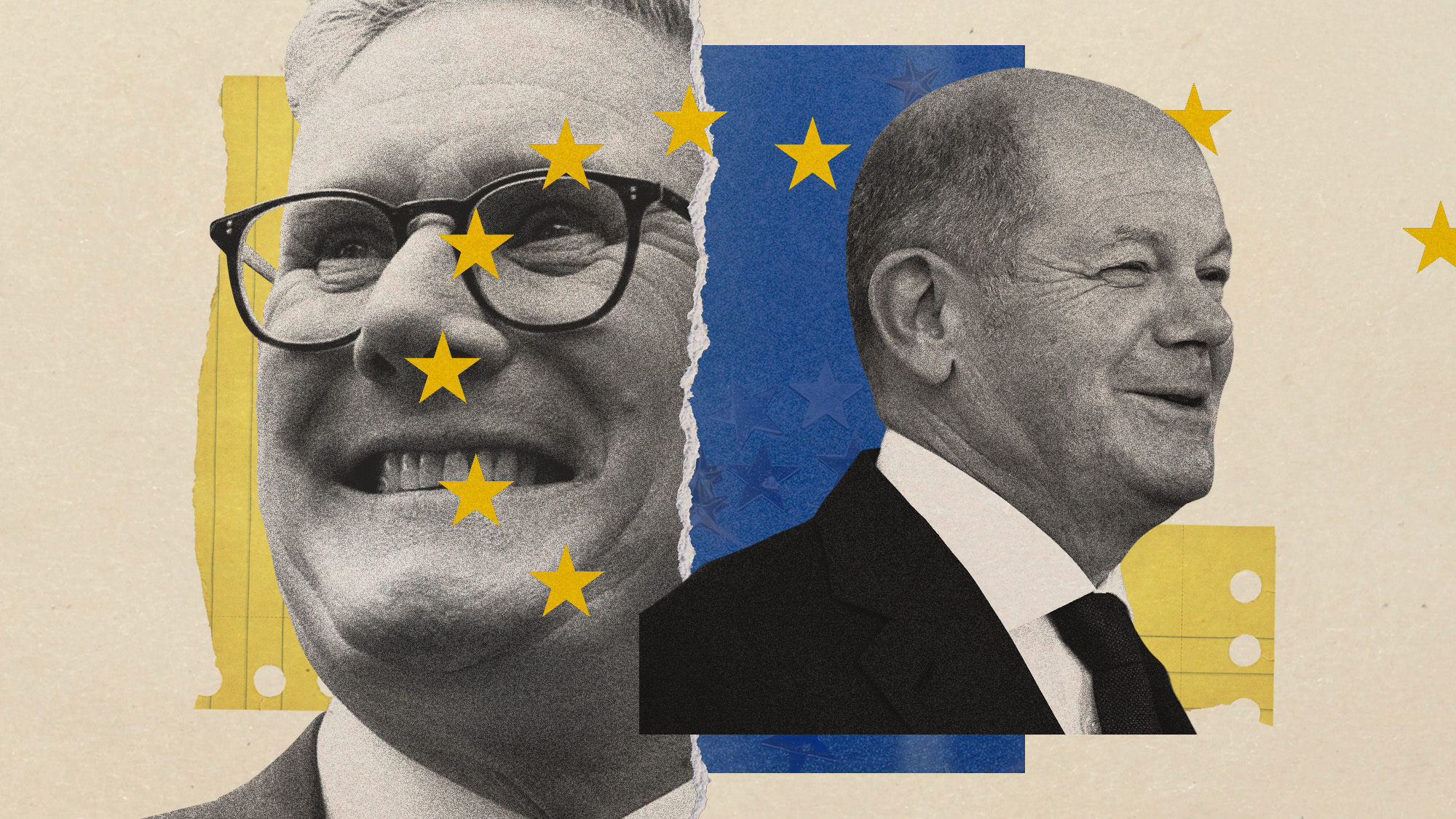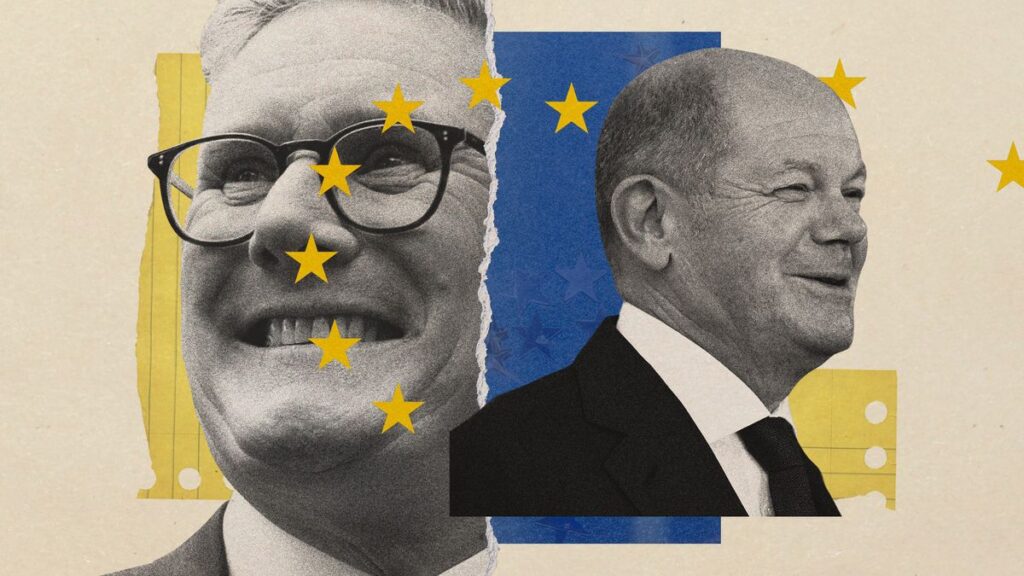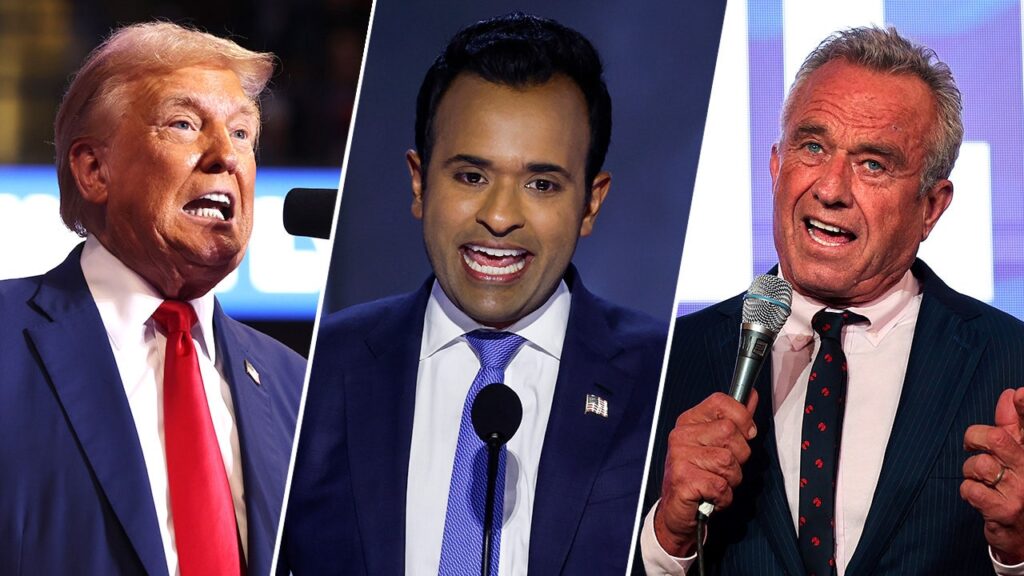Keir Starmer said he hopes that an “ambitious” UK-Germany treaty will be agreed by the end of the year.
The PM was speaking after he met with German Chancellor Olaf Scholz in Berlin this morning.
“Growth is the number one priority for my government… and building relations with our partners here in Germany and across Europe is vital to achieving it,” said Starmer.
Subscribe to The Week
Escape your echo chamber. Get the facts behind the news, plus analysis from multiple perspectives.
SUBSCRIBE & SAVE
Sign up for The Week’s Free Newsletters
From our morning news briefing to a weekly Good News Newsletter, get the best of The Week delivered directly to your inbox.
From our morning news briefing to a weekly Good News Newsletter, get the best of The Week delivered directly to your inbox.
The PM said that the countries had a “shared determination to harness the power of government for the service of working people, and that’s what we are doing today: a new UK-Germany treaty, a once-in-a-generation chance to deliver for working people in Britain and in Germany”.
But the problem for the PM is that “it is not yet clear how much improved bilateral relations with European nations can boost the UK economy”, said the BBC‘s diplomatic correspondent James Landale, especially when “post-Brexit rules determine how and what we trade with the EU as a whole”.
Starmer kicked off his “two-day lovebomb” of European allies by opening negotiations on the UK’s biggest-ever treaty with Germany, said London Playbook.
“No matter how many times” he “protests he won’t reverse Brexit, return to free movement or join a youth mobility scheme”, his “friendly language will be seized on with delight in Brussels”, but the “real question” is how this “charmfest” translates into hard policy.
Downing Street said the proposed treaty will be about “increased collaboration” in a number of areas from “market access”, to “innovation and tech”, trade “across the North Sea”, and “the environment”.
Starmer’s officials will be “trying to secure preferential access for British businesses to the German market”, focused on certifications, tenders and legal hurdles, said Geraldine Scott in The Times.
But it’s unclear “how comfortable Brussels would be with Germany striking a direct agreement with Britain”, given that the country still belongs to the single market.
The PM will discuss a “landmark” economic and defence accord with Scholz, said Reuters, which they hope will “bring about an unprecedented degree of bilateral military cooperation”.
The Nato allies, who are Western Europe’s biggest defence spenders, are keen to make an agreement ahead of a “possible scaling back of US military support for Ukraine” if Donald Trump returns to the White House.
The partnership “could resemble the Lancaster House pact between Britain and France agreed in 2010”, said the news agency, with pledges to “create a joint force and share equipment and nuclear missile research centres”.
Starmer is also keen to “increase joint action” on illegal migration, including furthering intelligence sharing to intercept and shut down organised immigration crime rings, wrote Albert Toth for The Independent. He is “likely to find an ally” in Scholz, who is under pressure on the issue after three people were killed in an attack by an asylum seeker last week.
What next?
Overall, Starmer’s approach “represents a departure from the previous government”, which “remained less open to the prospect of greater collaboration with the EU”, said The Independent.
He “has few hang-ups” over “dynamic alignment with EU standards”, wrote Mujtaba Rahman, managing director for Europe at Eurasia Group, in the Financial Times, nor “the level playing field or the role of the European Court of Justice in policing new agreements”. Things he is “ready to consider” include a visa scheme for EU nationals aged 18 to 30 – an early priority for Brussels.
But obvious obstacles remain. Germany is keen on a mobility scheme for young Europeans to live and work in Britain, the “very thing” that the UK government ruled out last week, said London Playbook.
An EU source told The Times that Starmer needs to realise “that any access to the EU’s single market comes with obligations on mobility and alignment with European laws, on food safety for example”.
From Berlin, Starmer will head to Paris for the Paralympics opening ceremony this evening, before meeting Emmanuel Macron and French business leaders tomorrow.



